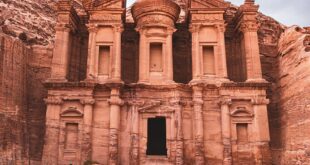The Importance of Conservation Ethics in Museum Studies
Museums are a place where visitors come to learn, study, and engage with the past. They are often the guardians of irreplaceable artifacts, delicate artworks, and historical documents. As such, museums should prioritize conservation in their operations. However, conservation ethics in museum studies are not always straightforward, and several pros and cons should be considered while evaluating them.
Pros of Conservation Ethics in Museum-Studies
Preservation of Artifacts: The most significant advantage of conservation ethics in museum-studies is the preservation of artifacts for future generations. With highly ethical standards, museum curators, and other exhibit organizers can make sure that the artifacts are in the best possible shape.
Promoting Research and Education: When cultural objects are appropriately preserved, they could be helpful in the collection of invaluable data for research and education purposes. In practical settings, conservation ethics that promotes research contributes to education and answers in ways that keep museum acquisitions accurate, relevant, and protected.
Long-term Cost-Effective: Proper preventive conservation executes routine condition assessments and ensures that there is early detection of malfunction in a museum’s collections. It is easy to avoid heavy cleaning costs that can increase over time. Identifying early decay or malfunction can also prevent subsequent expensive restoration, replacement, or multiplication.
Conservation within the Museum Field: In the long run, the careful and continuous support of conservation ethics becomes both nurturing and protective. Encountering and gathering objects can generate new understanding and histories. However, if this information is lost in time, The people who look to them cannot see this, have lost the benefits of new information, or insight.
Cons of Conservation Ethics in Museum-Studies
Excessive Cost: One of the challenges faced by conservation ethics in museum-studies is how it can wreak havoc on a museum’s budget. Ensuring that the artifacts remain in pristine condition requires investment, and preservation could most times become capital intensive in the process, while the galleries and collections compete for funds.
Change in Quality of Exhibition: This largely critical matter stems from a mismatch with qualitative criteria for exhibition value. Museum studies center crucially on audience engagement with effects of sensory immersion on connections to the valuable identity and the powerful impact on the historian, storyteller, or audience.
Tension Between Ethical Standards: Working towards implementing ethical conservation in museum studies could lead to conflict. Some institutions may prioritize exhibition standards with engaging representational experience, where there is ample opportunity for visitors to look after the health of exhibited artifacts and to learn about ongoing preventative preservation, while curators work such that this method of engaging disappears into the background beyond routine check-up and protective display.
Conclusion
There can periodically be a discernible tension between the urge to show-art or cultural manifestation, and the spectator’s engagement with conservation ethics. Nonetheless, conservation should remain a critical part of museum-studies. It ensures that artifacts and culturally salient objects are preserved for generations to come. As long term stewardship interventions escalate, the method sustains comprehension and generative benefits from encountered and new knowledge exhibited before visitors.
There are both pros and cons of conservation ethics in museum-studies. It is crucial to weigh both sides before deciding on conservation protocols. Museums have the responsibility to preserve the cultural heritage of their respective communities. Therefore, it is essential to carry out this task well and ensure that conservation ethics remain an integral part of museum studies.
 Mind Uncharted Explore. Discover. Learn.
Mind Uncharted Explore. Discover. Learn.



